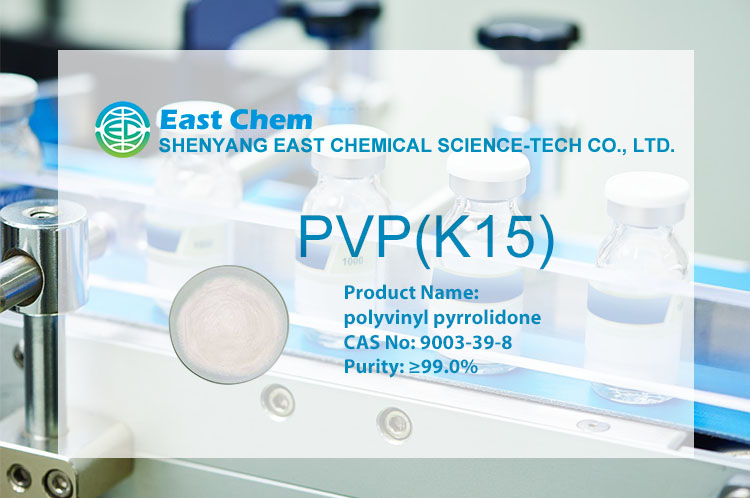polyvinyl pyrrolidone (K15)
- EASTCHEM
- China
- 15~20 days
- ≥99.0
- 9003-39-8
Polyvinylpyrrolidone (PVP), also commonly called polyvidone or povidone, is a water-soluble polymer made from the monomer N-vinylpyrrolidone.


Product introduction
Product parameter
Product Name | polyvinyl pyrrolidone |
CAS No. | 9003-39-8 |
Density | 1.144g/cm3 |
Molecular Formula | C6H9NO |
Boiling point | 217.6°C |
Melting point | 130°C |
Flashing point | 93.9°C |
Stability | Stable. Incompatible with strong oxidizing agents. Light sensitive. Hygroscopic. |
Appearance | White powder |
Storage | Store at RT. |
index(K15) | USP26 | EP7.0/USP36 |
k-value | 12.8-17.3 | 12.8-17.3 |
NVP residual order (capacity method)%≤ | 0.2 | — |
NVP residual (liquid chromatography) ppm≤ | — | 10 |
Moisture %≤ | 5 | 5 |
PH value (5% aqueous solution) | 3.0-7.0 | 3.0-5.0 |
Sulfate ash%≤ | 0.1 | 0.1 |
nitrogen content %≤ | 11.5-12.8 | 11.5-12.8 |
2-pyrrolidone%≤ | — | 3 |
Formic acid%≤ | — | 0.5 |
Aldehyde (in the form of acetaldehyde) ppm≤ | 500 | 500 |
Heavy metals (by lead) ppm≤ | 10 | 10 |
hydrazine ppm≤ | 1 | 1 |
Peroxide (measured by hydrogen peroxide) ppm≤ | — | 400 |

Polyvinylpyrrolidone, PVP is a non-ionic high molecular polymer. PVP is classified according to its average molecular weight. It is customarily used to indicate the K value. Different K values represent different PVP average molecular weight ranges. The K value is actually a characteristic value related to the relative viscosity of the PVP aqueous solution, and the viscosity is a physical value related to the molecular weight of the high molecular polymer. Therefore, the K value can be used to characterize the average molecular weight of PVP. Generally, the K value is more Large, the greater the viscosity.
Industrial applications of PVP include use as an adhesive to improve strength and thickness; increase strength in paper production; use as a resin coating; improve dye coloration in synthetic fibers; also commonly used in inks, imaging, lithography, detergents and soaps , textiles, pottery, electricity, metallurgy, and as a polymerization additive.
PVP is also widely used in the pharmaceutical industry due to its excellent adhesion, film formation, dispersion and thickening properties.
Product application